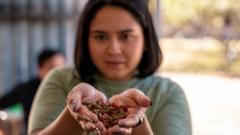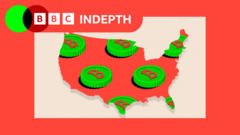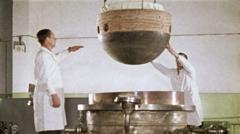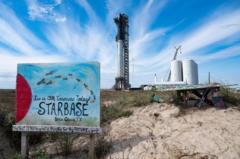Hugo Daniel Chávez and his team at Sustenta Honduras are revolutionizing the waste management landscape in Central America by recycling used cooking oil into soap and dog food. Their initiative not only tackles health risks and environmental impacts caused by improper disposal but also aims to empower local businesses through a sustainable model that has garnered international recognition.
Greening Honduras: Transforming Used Cooking Oil into Sustainable Products

Greening Honduras: Transforming Used Cooking Oil into Sustainable Products
A young NGO in Honduras is turning waste cooking oil into eco-friendly soap and dog food, promoting sustainability while combating environmental hazards.
Hugo Daniel Chávez, a 27-year-old project manager at the NGO Sustenta Honduras, is leading a remarkable initiative transforming used cooking oil into commercial products like soap and dog food. With deep-fried foods being a staple across many cultures in Latin America, millions of tones of cooking oil are consumed annually, resulting in significant waste management challenges. Chávez sees this waste as an opportunity for innovation, stating, "We are trying to transform waste and give it a second life," as he aims to promote a circular economy through practical, sustainable solutions.
In Honduras, improper recycling and disposal of used cooking oil can lead to severe health hazards and environmental contamination. Often, this oil is disposed of in drains or left on the streets, causing damage to infrastructure and polluting water sources. Sustenta's initiative aims to provide a responsible solution by incentivizing local businesses to properly dispose of their used oil. They offer to purchase the cooking oil and regularly collect it from participating establishments.
The idea for this project emerged from prior attempts to convert used oil into biodiesel. However, no sustainable market existed for biodiesel in Honduras, which led the team to pivot toward producing soap and dog food instead, materials that have a strong domestic market potential. The initiative gained momentum, receiving $20,000 as a winner of the 2023 Youth4Climate Energy Challenge and continuing to draw international support, notably from the Embassy of the Netherlands, recognizing the positive social and environmental impacts of the project.
Sustenta compensates participating businesses with approximately 2.50 to 3.50 Lempiras (about £0.08 to £0.11) per pound of used cooking oil. Recently, they signed a crucial contract with Walmart’s Central American division, guaranteeing a steady supply of used cooking oil from their retail operations. Mr. Pineda emphasizes that securing this flow of oil is pivotal, as black market competition could threaten their production capacity.
Once collected, the used cooking oil is processed at a plant in Comayagua through saponification, which transforms the fats into soap. The project is focused on creating a holistic ecological system, incorporating waste from nearby facilities, like water purification plants, to optimize their resources. Each bar of soap is sold for 15 Lempiras (£0.45), and the initiative generates a monthly revenue of over 106,000 Lempiras (£3,194.70), although none of the profits are retained by Sustenta; their goal is to reinvest in future opportunities.
Sustenta is staffed by a youthful team, with an average age of 23, driven by a desire to enact change in addressing environmental challenges. Indicating a fusion of proactive and confrontational environmental strategies, project coordinator Paola Acevedo notes, “We try to focus on solutions, while the others fight on the front lines.” Through their innovative approach, Sustenta Honduras has emerged as a beacon of sustainability, offering a model for waste management and social impact for communities grappling with climate change challenges.




















